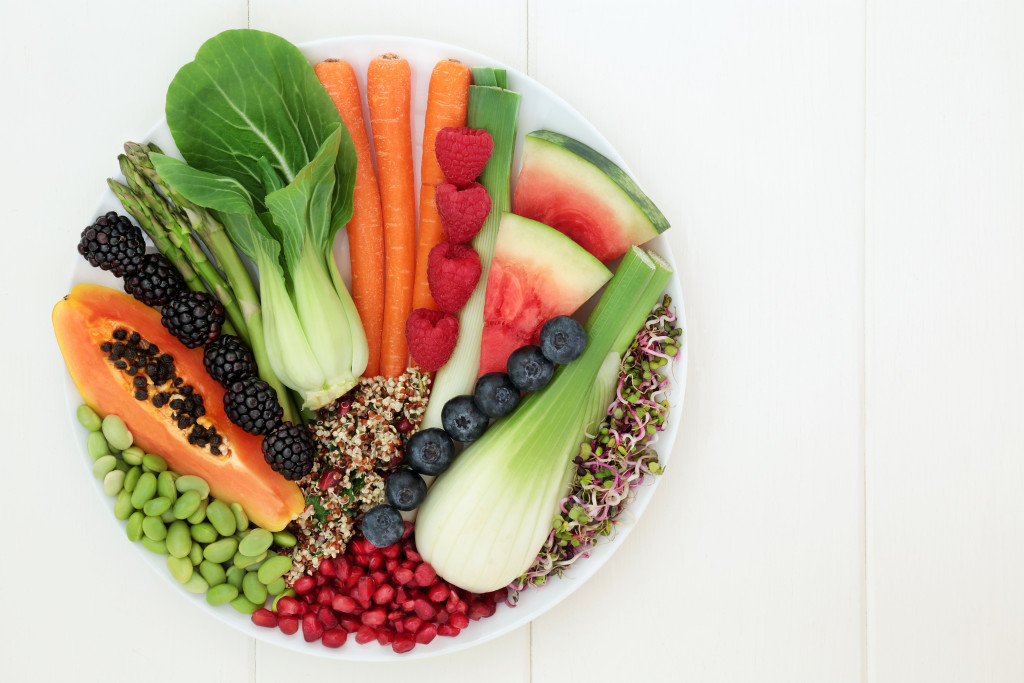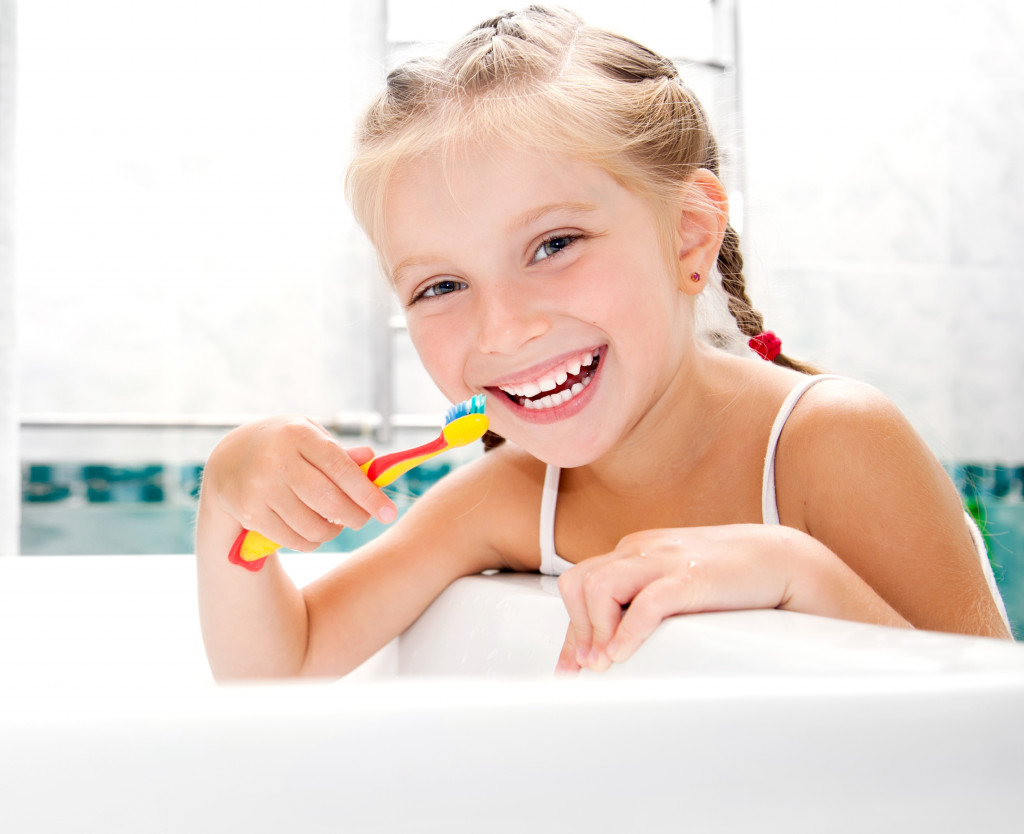- Prioritize a balanced diet with plenty of fresh fruits and vegetables, whole grains, and lean protein.
- Encourage physical activity daily to maintain a healthy weight and improve sleep.
- Teach children proper hygiene, like washing hands regularly and covering their noses and mouth when coughing or sneezing.
- Limit sugary snacks and drinks to reduce cavities.
- Make small lifestyle changes to positively impact your child’s health.
As a parent, ensuring your child’s health and well-being is a top priority. Sometimes, however, it can be challenging to know where to start. Should you focus on nutrition, exercise, or hygiene? Making sense of it all can feel overwhelming, and the constant barrage of information can be confusing.
Fortunately, there are several things you can do as a parent to help keep your child healthy. This blog post will guide you through some crucial steps to help you keep your child healthy and thriving!

Prioritize Nutrition
Eating a balanced diet is crucial for your child’s development and overall health. Ensure your child’s meals include fresh fruits and vegetables, whole grains, and lean protein. Avoid processed foods, sugary snacks, and beverages high in sugar.
More Calories
Kids need a lot of calories to sustain their activity levels. But the quality of the food they consume is just as important as the quantity. Make sure your child has plenty of healthy snack options, like grapes, carrots, and yogurt. When eating out, encourage your child to make healthier choices by sharing meals or choosing something grilled rather than fried.
Suitable Hydration
Additionally, make sure your child gets adequate hydration throughout the day. Offer your child water or low-fat milk, and limit sugary drinks like juice and soda. Staying hydrated is essential for physical activity, concentration, and overall health.
Encourage Physical Activity
Regular exercise is essential to maintain a healthy weight and improve sleep and overall health. Encourage your child to engage in daily physical activity, whether playing outside, riding a bike, or participating in organized sports. The key is to make it fun and help them find an enjoyable activity.
Physical Activities
Encourage them to engage in activities that require them to be active, for example, delivering a message to a neighbor, walking the family dog, or helping to tidy up a room. You can also find creative ways to make everyday tasks more active, such as having a dance party while doing the dishes or shooting hoops between yard work. Making physical activity part of your family routine will help your child learn healthy habits to carry into adulthood.
Promote Social Skills
In addition to providing physical exercise, physical activities are a great way to bond with your child and promote social skills like cooperation, communication, and teamwork. When you engage in physical activities together, you can also teach your child respect for their body while showing them the importance of a healthy lifestyle.
Take Care of Oral Health
Good oral health is essential for physical and mental well-being, especially in children. Parents are responsible for helping children develop and maintain a healthy mouth, which can lead to many benefits, including better eating habits, improved speech development, and even higher self-confidence.

Oral Health Habits
Parents should ensure their children brush their teeth twice daily for two minutes each with fluoride toothpaste. It is also crucial to floss teeth at least once a day, which helps remove plaque and food particles between the teeth that are difficult to reach with brushing alone. You should also bring your child to a reputable dentist regularly.
Limit Sugary Snacks
Parents should also limit their children’s sugary snacks and drinks intake as these can increase the risk for cavities. Choosing healthy snacks such as fresh fruits, vegetables, and whole grains is essential. Additionally, too many sugary beverages can erode the enamel on teeth and put children at risk for cavities.
Maintain Good Hygiene
Good hygiene is essential to prevent the spread of germs and maintain overall health. Encourage your child to wash their hands regularly, especially before meals and after using the bathroom.
Bathroom Hygiene
Bathroom hygiene is important, especially when children are in contact with shared surfaces like doorknobs or faucets. Teach your child to cover their nose and mouth when coughing and sneezing in a tissue or elbow. Helping your child to become self-reliant with hygiene ensures they can practice these practices even when you aren’t there to remind them.
Food Hygiene
Educate your children on the importance of keeping food clean and separate from other items that may cause contamination. This includes washing hands before eating and avoiding eating food that has been contaminated by other sources.
Parenting can be challenging at times, but prioritizing your child’s health can set them up for a happy and healthy life. Encourage your child to eat a balanced diet, stay active, practice good hygiene, and get enough sleep. By doing so, you are helping to lay a solid foundation for their future health and well-being. Remember that small changes can significantly impact your child’s health, so start by making one positive change today!
